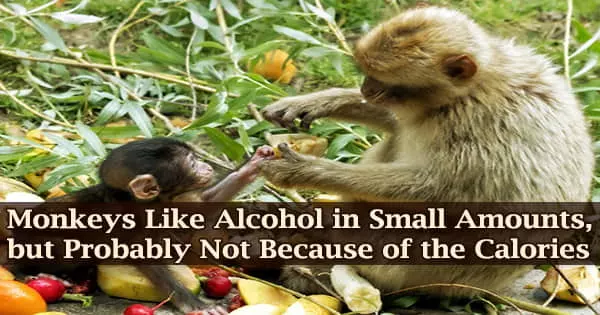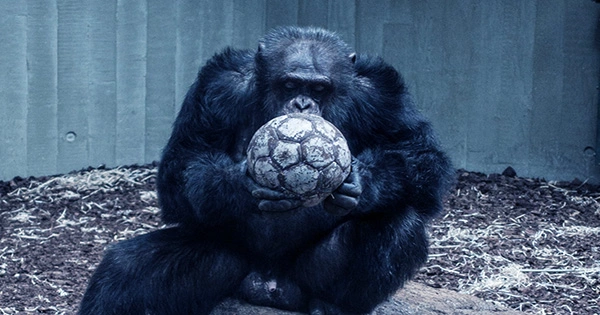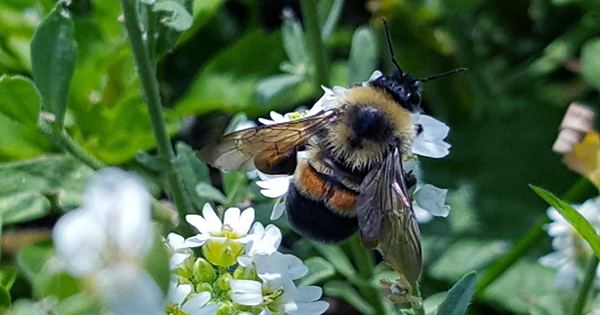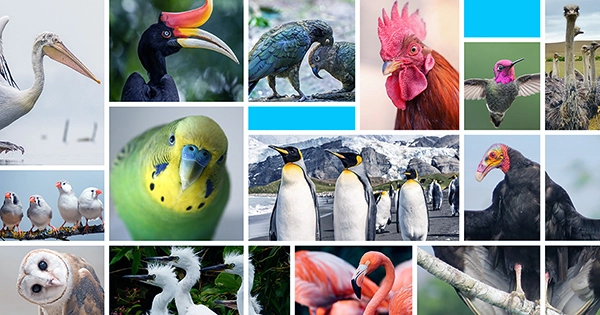According to a study by researchers from Linköping University in Sweden and the Universidad Veracruzana in Mexico, fruit-eating monkeys prefer amounts of alcohol present in fermenting fruit but do not appear to utilize alcohol as a source of supplemental calories.
The findings refute the theory that human alcoholism arose from primates’ preference for overripe fruit carrying alcohol. Alcohol is formed when overripe fruit is fermented by bacteria.
They are, however, omnivores, not herbivores, because they eat some sort of animal protein. And because different monkey species dwell in different settings, they don’t all have the same food sources.
According to several studies, fruit-eating monkeys employ dietary ethanol as a source of additional calories. The authors of the current study, which was published in Chemical Senses, set out to put this theory to the test.
Monkeys are primates, which means they are mammals. They belong to the Hapolorini suborder and the Simiiformes infraorder, which includes the simians. They cannot synthesis vitamin C, unlike those in the suborder Strepsirrhini, and must obtain it through their diet.
As a result, they eat a wide variety of foods, including bananas and other fruits, which classifies them as frugivores. Not only are most monkeys omnivores, but several species are frugivorous and insectivorous at the same time, while others are primarily frugivorous or insectivorous. The tarsier is the only obligate carnivorous primate.
The findings, therefore, do not support the idea that dietary ethanol is used by fruit-eating primates as a source of supplementary calories. Similarly, the findings do not support the idea that a predilection of non-human primates for alcohol-containing overripe fruits reflects the evolutionary origin of human alcoholism.
Matthias Laska
The researchers gave eight spider monkeys varied quantities of ethanol naturally found in fermenting fruit (0.5-3%) and tap water as an alternative in a first experiment conducted at a field site in Mexico.
The mice were able to identify ethanol at quantities as low as 0.5 percent, according to the researchers. Humans, on the other hand, have a detection threshold of 1.34 percent for this alcohol. All ethanol concentrations up to 3% were preferred by the monkeys over water.
“These results demonstrate that fruit-eating spider monkeys are extraordinarily sensitive to the taste of ethanol. We also found that they prefer this alcohol when presented at naturally occurring concentrations found in fermenting fruit,” says Professor Matthias Laska at the Department of Physics, Chemistry and Biology (IFM) at Linköping University.
In a second experiment, the spider monkeys were given the option of drinking either a sugar solution spiked with ethanol or a sugar solution that was not spiked with ethanol. The ethanol-spiked sugar solution was definitely favoured by the animals.
When given a choice between an ethanol-spiked sugar solution and a higher-concentration sugar solution without ethanol, the animals clearly favored the pure sugar option, despite the fact that the sugar-ethanol combo had three times the calories.
The spider monkeys were given the option of eating puréed fruit spiked with ethanol or puréed fruit without ethanol in a similar experiment.
The results of the tests with sugar solutions and puréed fruit spiked with ethanol or not show that sweetness, and thus carbohydrate content, may be more relevant than ethanol calories for the spider monkeys’ preferences.
“The findings, therefore, do not support the idea that dietary ethanol is used by fruit-eating primates as a source of supplementary calories. Similarly, the findings do not support the idea that a predilection of non-human primates for alcohol-containing overripe fruits reflects the evolutionary origin of human alcoholism,” says Matthias Laska.
















